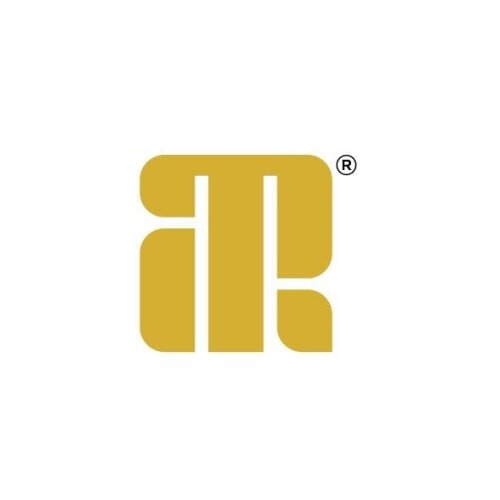Best Financial Services Regulation Lawyers in Kuwait City
Share your needs with us, get contacted by law firms.
Free. Takes 2 min.
List of the best lawyers in Kuwait City, Kuwait
About Financial Services Regulation Law in Kuwait City, Kuwait
Financial Services Regulation in Kuwait City, Kuwait, refers to the framework of laws and regulations governing financial operations, including banking, insurance, capital markets, and investment services. The Central Bank of Kuwait (CBK) and the Capital Markets Authority (CMA) are the primary regulatory bodies overseeing these financial sectors. The regulatory framework is designed to ensure stability, transparency, and integrity within the financial system, protecting consumers and maintaining public confidence.
Why You May Need a Lawyer
Engaging a lawyer specializing in Financial Services Regulation may be necessary in various situations, such as when setting up a financial institution, navigating complex regulatory requirements, ensuring compliance with evolving financial regulations, handling disputes with regulatory bodies, or addressing issues related to financial fraud or misconduct. Having a legal expert can provide clarity on local laws and help mitigate risks through informed decision-making.
Local Laws Overview
Kuwaiti laws relevant to Financial Services Regulation include the Banking Law, the Capital Markets Law, the Anti-Money Laundering and Counter-Terrorism Financing Law, and the Companies Law. These laws cover licensing requirements, operational guidelines, corporate governance, consumer protection, financial reporting, and penalties for non-compliance. Financial institutions are required to adhere to stringent regulatory standards enforced by the CBK and CMA to promote resilience and accountability within the financial ecosystem.
Frequently Asked Questions
What is the role of the Central Bank of Kuwait in financial regulation?
The Central Bank of Kuwait is responsible for regulating and supervising the banking sector, ensuring stability, and maintaining monetary policy. It sets guidelines for banking operations and licensing, monitors compliance, and enforces regulations to protect the financial system.
How does the Capital Markets Authority impact financial services?
The Capital Markets Authority oversees and regulates Kuwait's capital markets, including securities trading and investment funds. It aims to foster a transparent and competitive market environment, safeguard investors, and develop market efficiency.
What are the licensing requirements for financial institutions in Kuwait?
Financial institutions must obtain relevant licenses from the Central Bank of Kuwait or the Capital Markets Authority, depending on the services offered. This entails meeting specific capital requirements, submitting business plans, and adhering to regulatory criteria.
How are consumer protections implemented in financial services?
Consumer protection laws in Kuwait ensure transparency and fairness in financial services. They require clear disclosure of terms, safeguard against unfair practices, and establish avenues for resolving consumer complaints efficiently.
What should a financial institution do to ensure compliance with AML regulations?
Financial institutions must implement robust anti-money laundering (AML) protocols, including customer due diligence, transaction monitoring, and reporting suspicious activities to authorities as part of their compliance obligations.
Are there specific regulations for Islamic financial services?
Yes, Islamic financial services in Kuwait adhere to Sharia-compliant principles. Regulatory bodies provide guidelines specific to these services, ensuring they align with Islamic law while maintaining transparency and accountability.
What are the penalties for non-compliance with financial regulations?
Penalties for non-compliance can include fines, suspension or revocation of licenses, and legal action against individuals or entities involved in regulatory breaches. It highlights the importance of adhering to prescribed standards.
How does regulatory oversight enhance financial system stability?
Regulatory oversight ensures that financial institutions operate within set guidelines, mitigating risks like fraud and financial crises. It fosters trust, encourages fair practices, and promotes resilience within the financial system.
How can legal advice support financial innovation?
Legal advisors assist in navigating regulatory hurdles and facilitating innovation in financial technology and services. They provide insights into compliance needs while fostering an environment conducive for growth and development.
What could trigger a financial dispute requiring legal intervention?
Disputes might arise over issues like contractual disagreements, regulatory infringements, fraud, or breaches of fiduciary duty. Legal intervention can mediate, resolve, or litigate such disputes, protecting rights and interests.
Additional Resources
For further assistance, individuals can reach out to the Central Bank of Kuwait, the Capital Markets Authority, and the Kuwait Ministry of Commerce and Industry. Additionally, consulting local legal firms specializing in financial regulation can provide personalized guidance and support.
Next Steps
If you require legal assistance in Financial Services Regulation, consider consulting with a qualified lawyer experienced in this area. Start by researching reputable legal firms, scheduling consultations, and discussing the specifics of your situation to receive tailored advice. Taking proactive measures to understand and address regulatory requirements will aid in achieving your financial objectives while ensuring compliance with Kuwait's legal framework.
Lawzana helps you find the best lawyers and law firms in Kuwait City through a curated and pre-screened list of qualified legal professionals. Our platform offers rankings and detailed profiles of attorneys and law firms, allowing you to compare based on practice areas, including Financial Services Regulation, experience, and client feedback.
Each profile includes a description of the firm's areas of practice, client reviews, team members and partners, year of establishment, spoken languages, office locations, contact information, social media presence, and any published articles or resources. Most firms on our platform speak English and are experienced in both local and international legal matters.
Get a quote from top-rated law firms in Kuwait City, Kuwait — quickly, securely, and without unnecessary hassle.
Disclaimer:
The information provided on this page is for general informational purposes only and does not constitute legal advice. While we strive to ensure the accuracy and relevance of the content, legal information may change over time, and interpretations of the law can vary. You should always consult with a qualified legal professional for advice specific to your situation.
We disclaim all liability for actions taken or not taken based on the content of this page. If you believe any information is incorrect or outdated, please contact us, and we will review and update it where appropriate.















